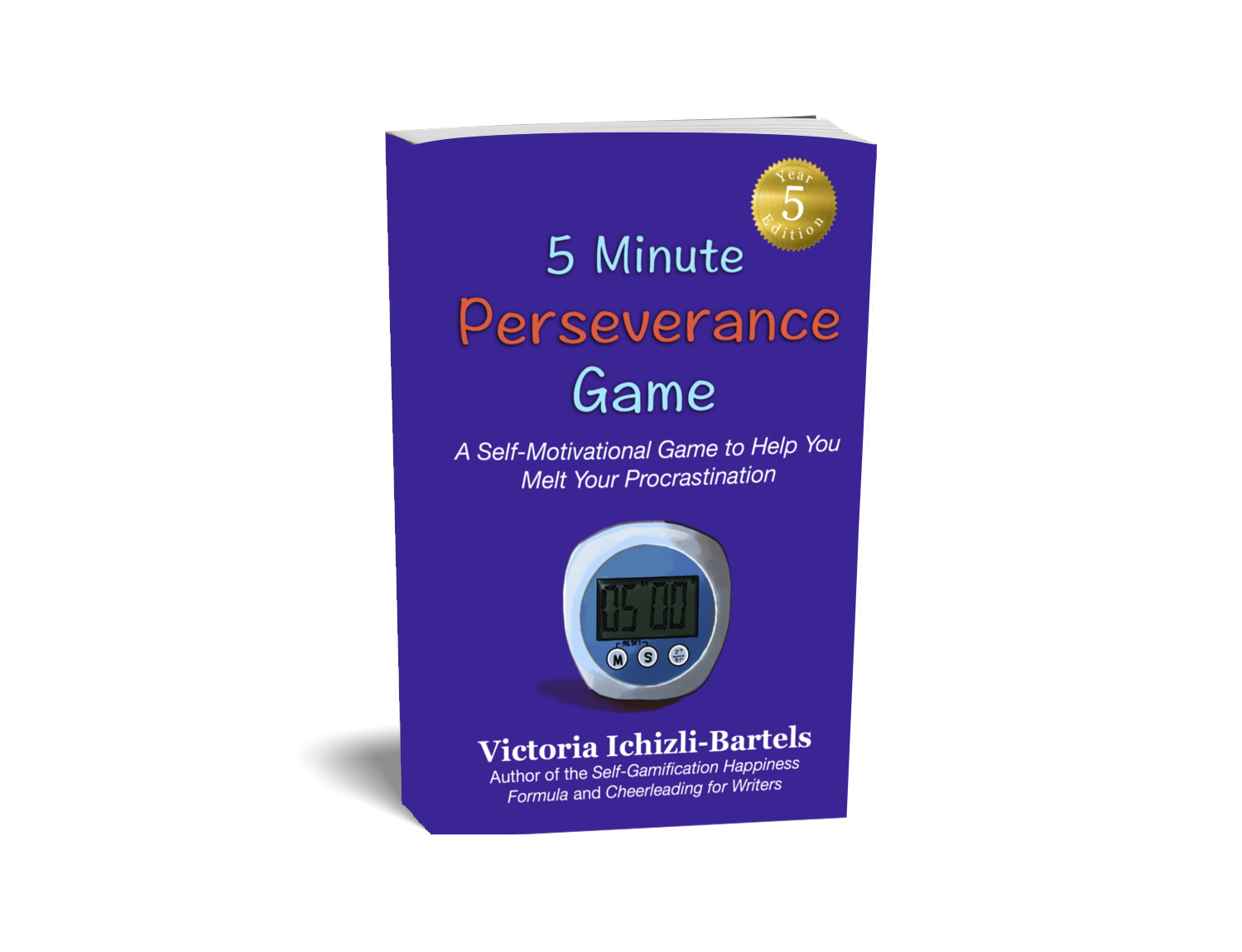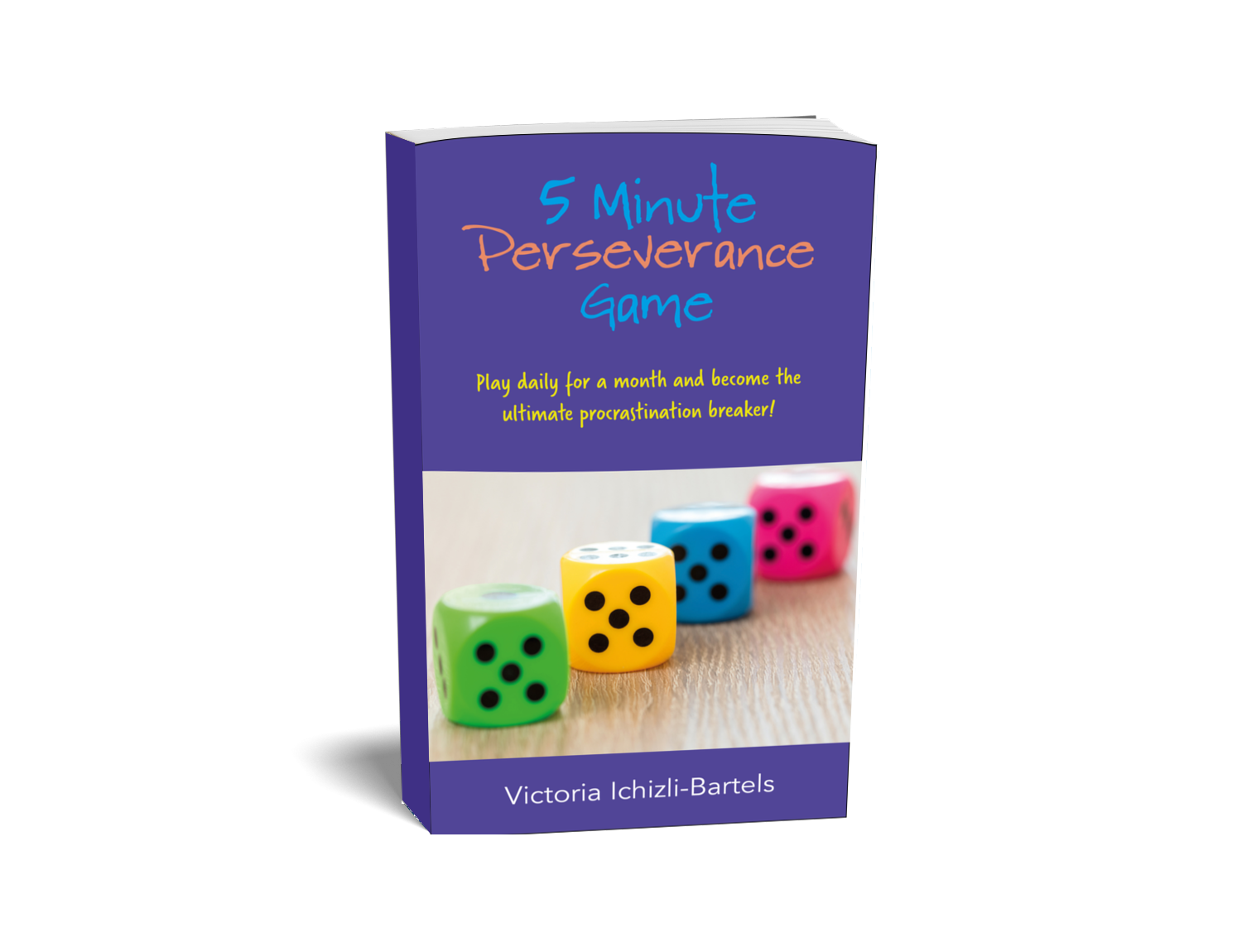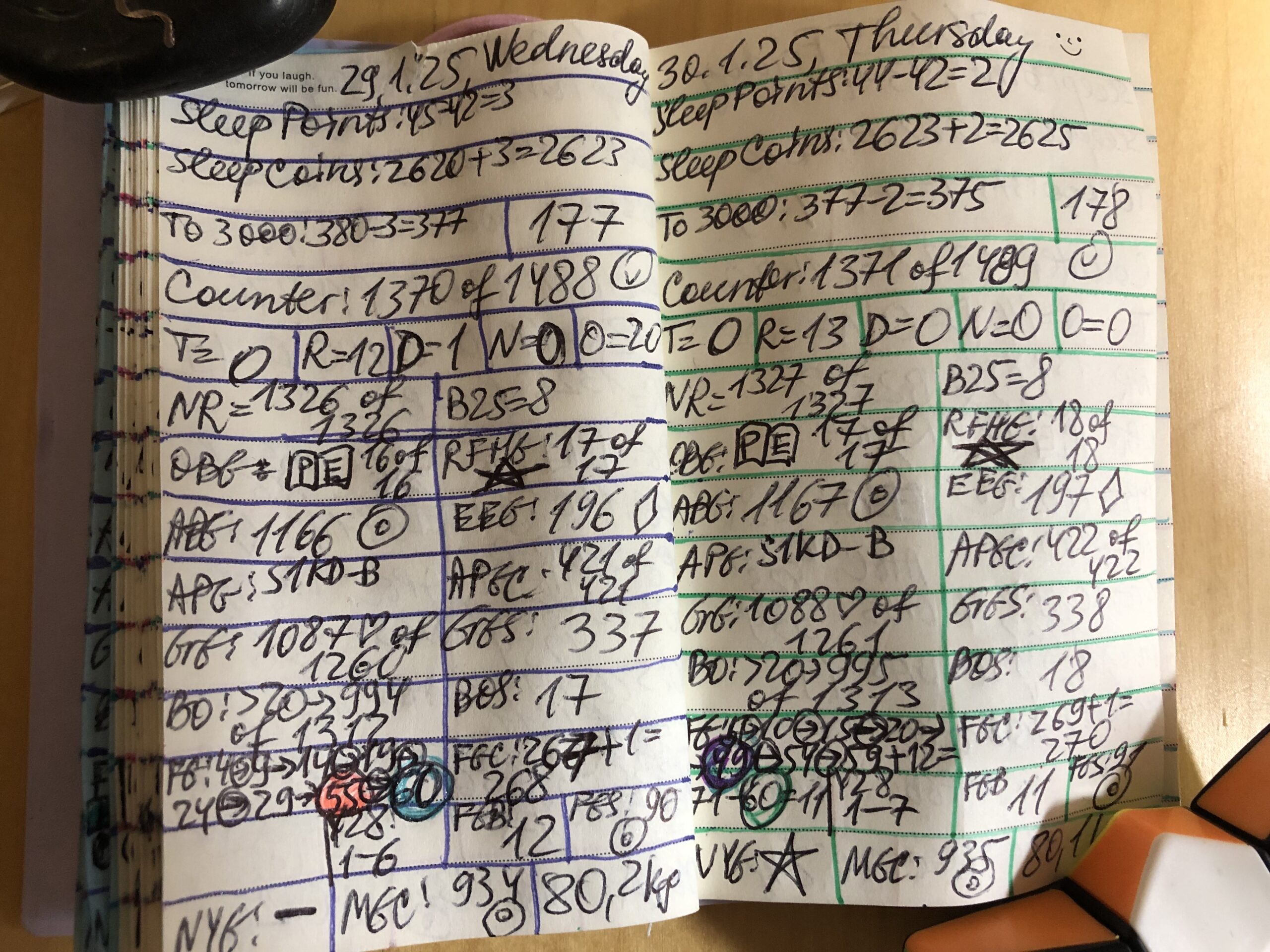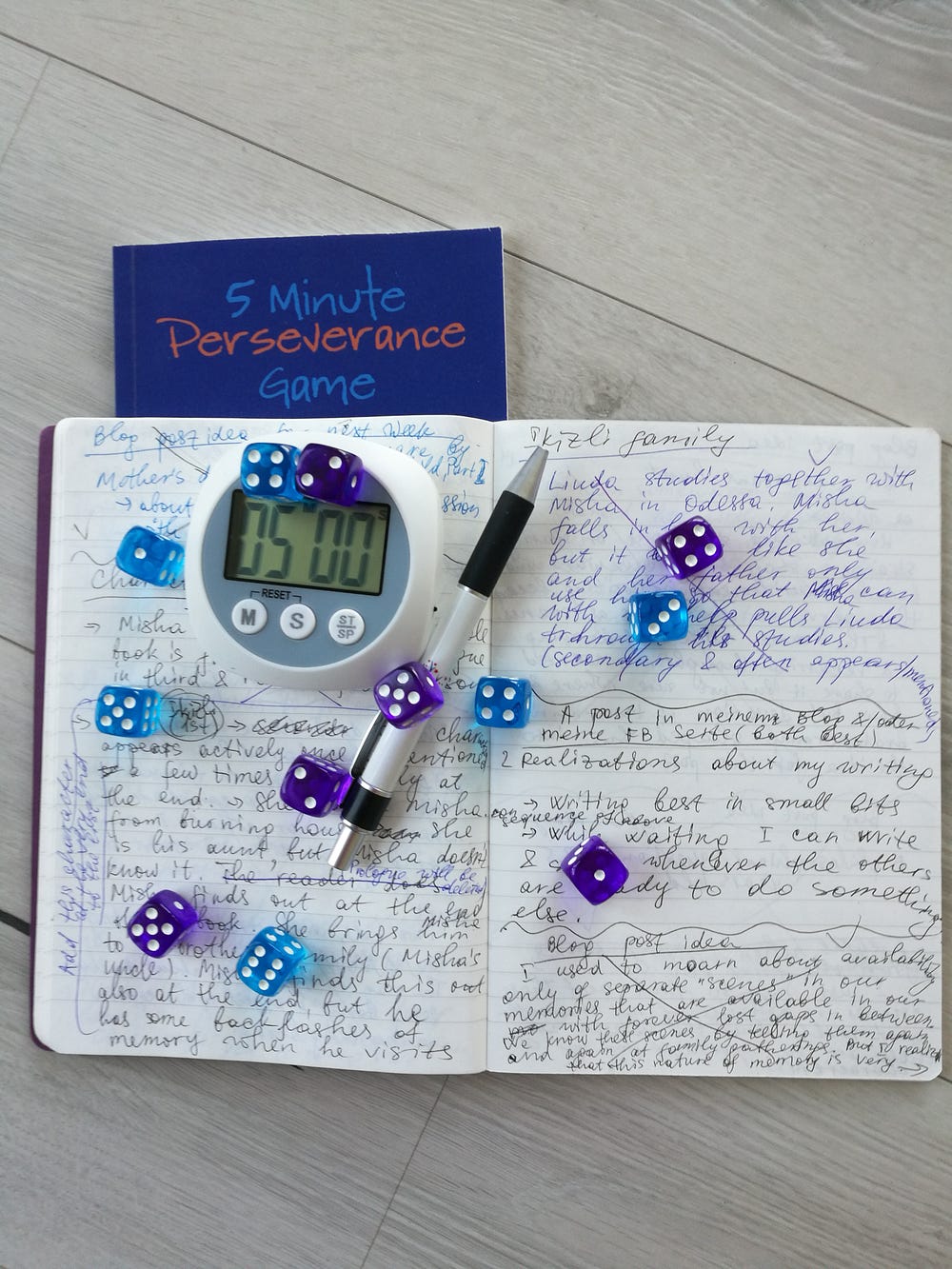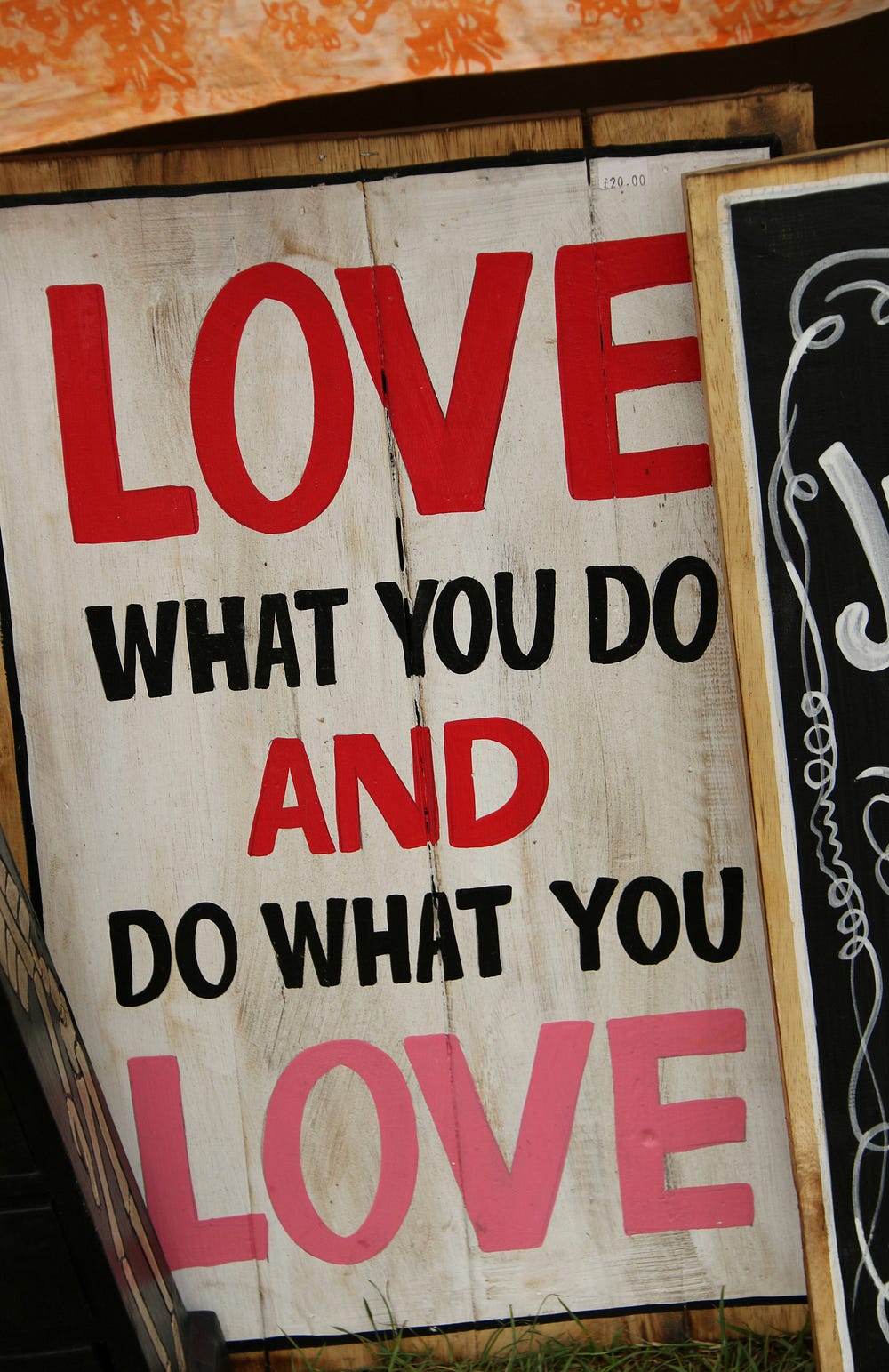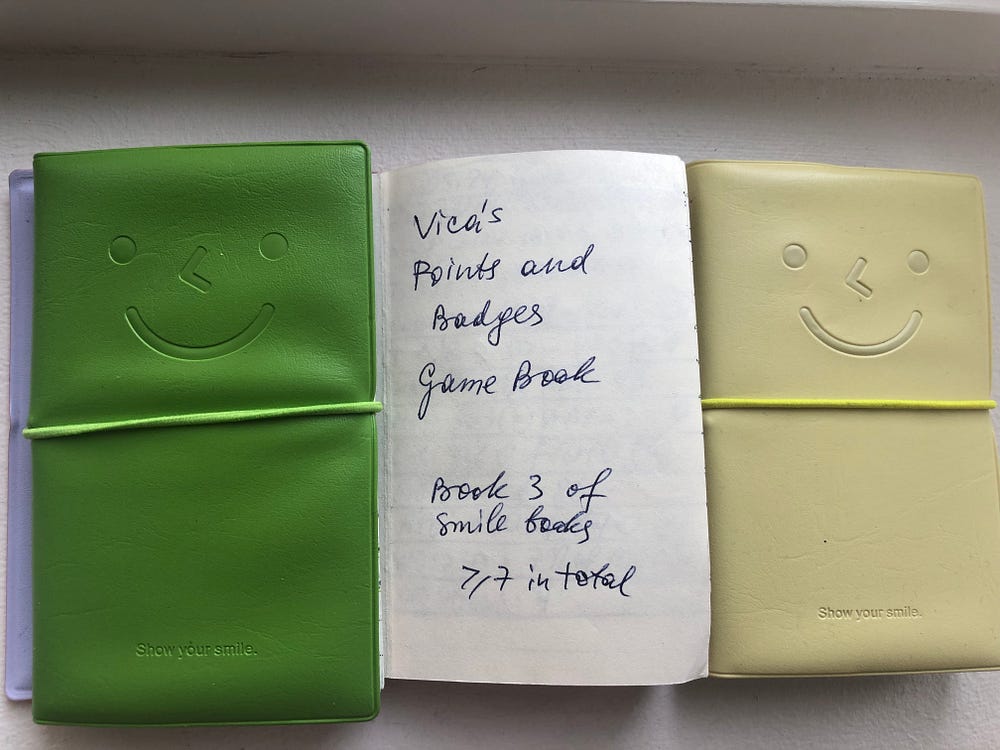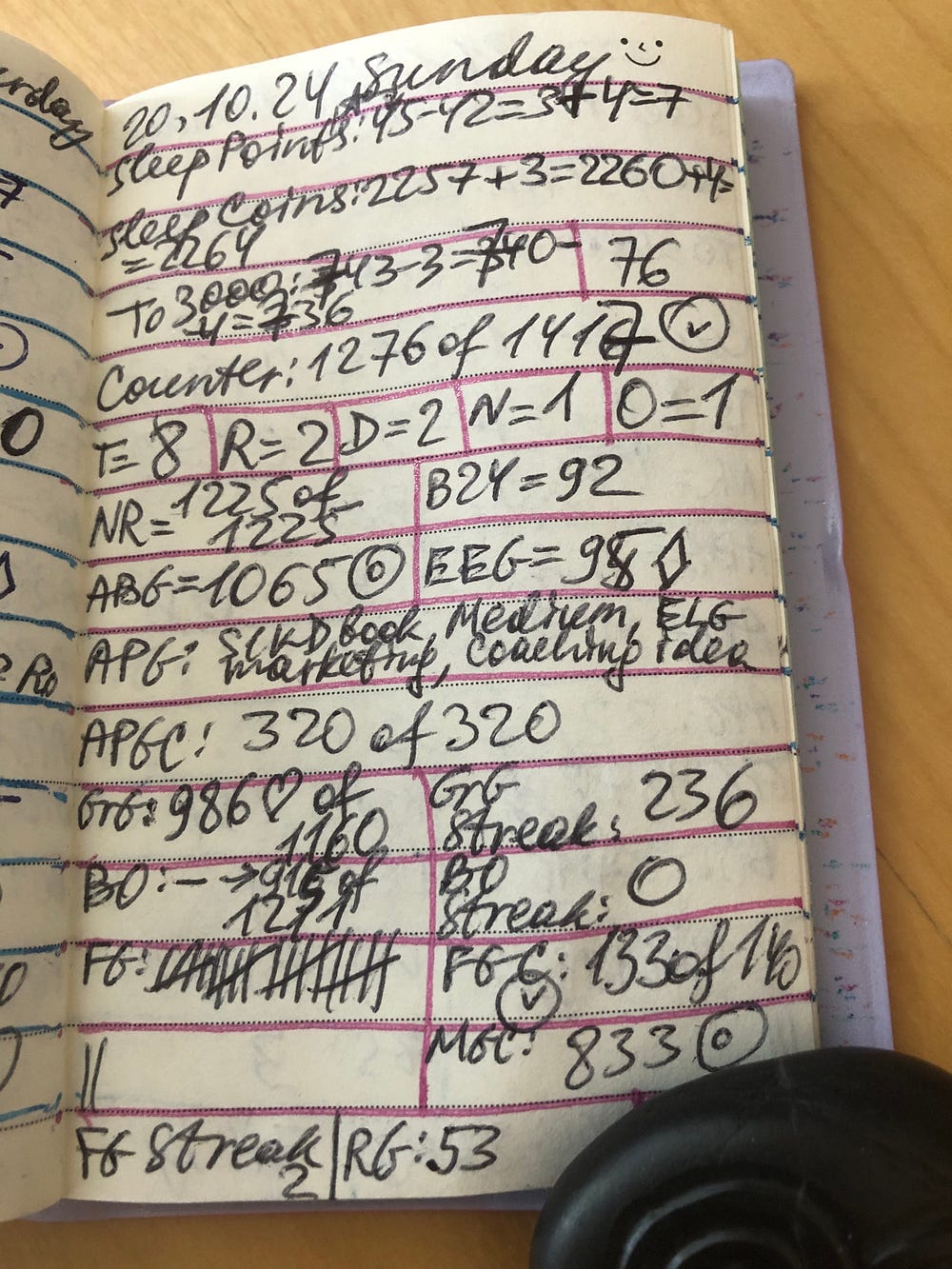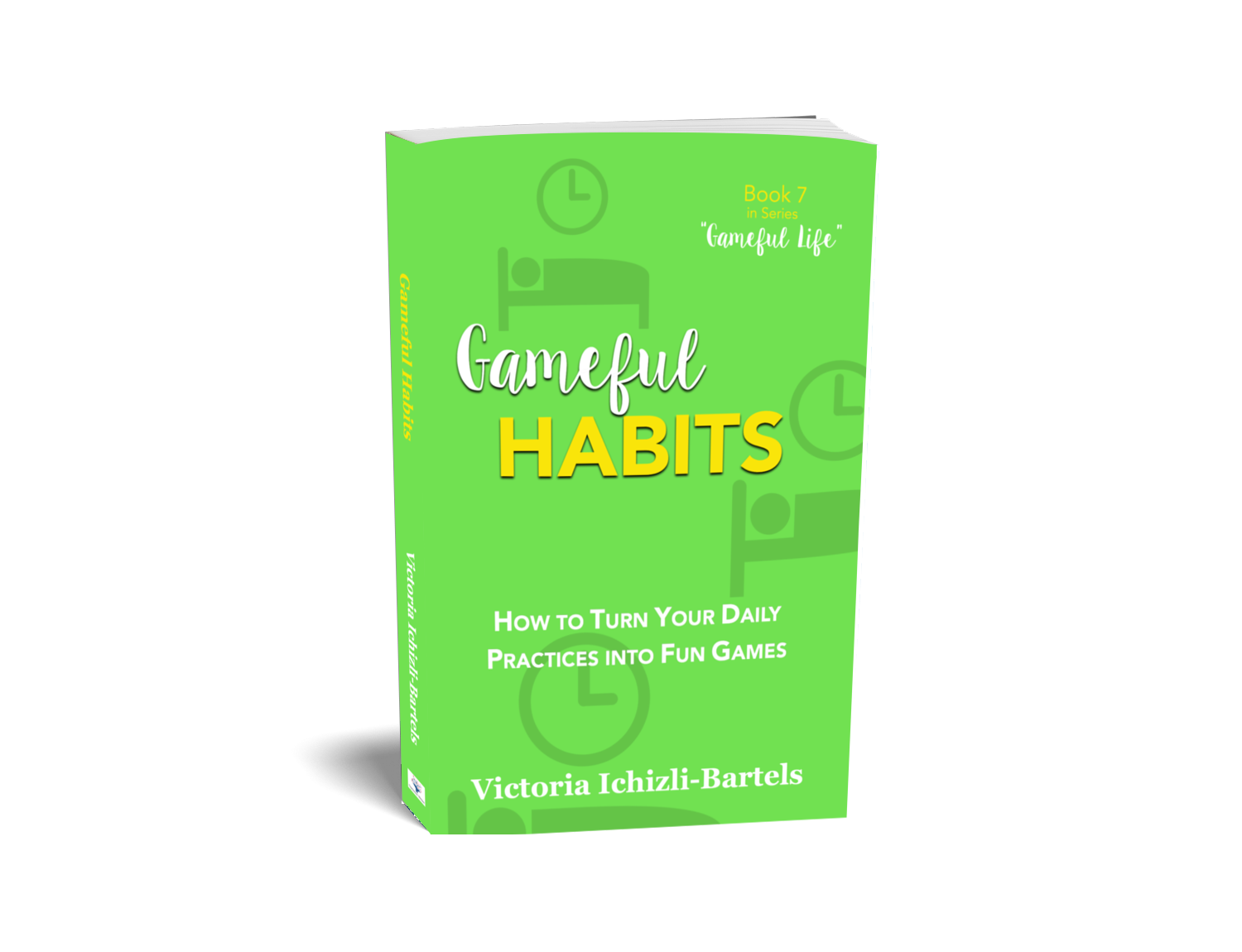Sharing the writing game with others
In 2015, even with two small children, I managed to finish my first book: revising it, having it professionally edited, and then publishing it. Doing all of it in small steps between taking care of my family, maintaining a household, and blogging.
At the end of that year, I published another book. Shortly before that, I joined a writers’ club in Aalborg, Denmark, where I live. At that time, I was already working on several writing projects in parallel, continuing voluntary work in a technical community, moving to a new house with my family, and starting a business. At some point, my fellow writers in the writers’ club asked me how I pursued so many projects in parallel, along with taking care of a business and a family with two small children.
As I contemplated how to summarize and explain how I did it, I recalled the game Menna introduced. So, I suggested that my friends give it a go. I organized a Facebook group called “Procrastination Breakers Club,” where we played this game with rounds going on for one month.
The rules of the game were straightforward. We had to introduce the project we wanted to take into the game. It didn’t have to be writing; it could be learning a language, practicing a musical instrument, planning a big event, such as a wedding, working out, renovating a house, or anything else that we wanted or had to do but didn’t think we had time for. Then, we had to pursue the project for at least five minutes daily. If we did it, we earned a point. If we didn’t, we lost the point to our procrastinating selves. And if we persevered for less than five minutes, we got half a point, with the other half going to the procrastinating part of ourselves.
At the end of the month, we counted up our points, and if it was a writing project, we also counted the words we had written.
That first round of the game I moderated for the Procrastination Breakers’ Club was one of the most significant revelations in my life as a writer. In that month, I wrote more than six thousand words by writing for five minutes a day, sometimes more (but never longer than twenty minutes) and sometimes less. Six thousand! If I continued to write the book at the same pace, I would have a complete manuscript within a year. By writing for only five minutes a day!
Many traditionally published authors sign contracts with publishers where they commit to writing one book a year. So, by writing in small chunks daily, I could write a manuscript a year and manage such terms, too.
That was one of the most beautiful discoveries for me as a writer.
I didn’t proceed with that book but finished writing and published several other books of various lengths that year and the years after.
And another marvelous thing happened. During one of the rounds of our game, a writer friend wrote me a personal message on Facebook. She told me that a sentence I often like quoting, which I mentioned at the writers’ panel we both attended, helped her break her writer’s block. She was late sending a book manuscript to her publisher, and it seemed unlikely that she would manage to finish it. The sentence she referred to was: “You can’t edit an empty page.”
“You can’t edit a blank page.” — Nora Roberts
I was delighted when she shared this experience with me, and I invited her to play the game with us. She accepted the invitation.
She commented on our group’s page that the game was helping her, and she expressed her surprise with much color and enthusiasm. Sometime later, she posted a message with multiple exclamation marks announcing that she had finished the manuscript and sent it to her publisher.
This author’s name is Sasha Christensen, and she is an award-winning Young Adult fantasy author in Denmark. She allowed me to quote her and even suggested that I put the cover of her book (the one she’d been struggling to finish) on my website. Before sending the picture, she wrote, “This [book] is the one you helped break my block on, btw ;).”
Seeing the effect the game could have and how much fun it was, I dedicated a little book to it, which I named 5 Minute Perseverance Game: Play Daily for a Month and Become the Ultimate Procrastination Breaker. The board game I received from my husband as a Christmas gift the previous year inspired me to structure this book as if it were the description of such a game. Writing this little book was a unique and fun experience in itself. In March 2021, I published the second (5-Year) edition of this book to celebrate the path that writing this little book and continuing to turn my life into fun games had taken me down.
***
Effects of the game
Bit by bit, I extended the 5 Minute Perseverance Game to other areas of my life and soon observed myself developing and practicing the following three skill sets:
- Observing myself non-judgmentally (as an anthropologist would);
- Identifying and making small and effortless steps; and
- Applying game design elements to take and appreciate the small steps in a fun way.
I have been and am still using these three skill sets together. I might be the first to claim that these skills are mutually supportive and can result in fantastic synergy when applied together.
Besides developing these vital skill sets, I noticed the following effects of the 5 Minute Perseverance Game. Among others, those who played it:
- Developed habits they aspired to.
- They broke undesired habits by focusing on positive actions in the 5 Minute Perseverance Game.
- They overcame their procrastination without trying to get rid of or break it, with almost no effort, and made progress in a project of their choosing, one small step at a time.
- They jumpstarted a lengthy engagement in a project by playing it for five minutes and being boosted by the resulting motivating effect to do more.
- They stopped judging others, themselves, or specific parts of themselves (be they ambitious or procrastinating) and instead learned to embrace and appreciate various parts of themselves and others.
- And they became curious about what else is possible to approach gamefully.
***
How to play the 5 Minute Perseverance Game
The game itself is very simple. You work on the project you want to persevere with for five minutes every day over one month, week, or another period. Only the actual work on that specific project or activity counts. If you manage the five minutes, then you get one point; if not, then the procrastinating part of you gets one. If you play this game for a little bit less than five minutes, then both the ambitious and procrastinating parts of you get half a point. At the end of the month, week, etc., you total the points and determine which of you has won that round of your 5 Minute Perseverance Game.
Let’s split this game description into the main game components as defined by Jane McGonigal in her best-selling book Reality is Broken:
“What defines a game are the goal, the rules, the feedback system, and voluntary participation. Everything else is an effort to reinforce and enhance these four core components.” — Jane McGonigal, Reality Is Broken [1]
Goal:
“The goal is the specific outcome that players will work to achieve. It focuses their attention and continually orients their participation throughout the game. The goal provides players with a sense of purpose.” — Jane McGonigal, Reality Is Broken [2]
To win a point or the whole round of the 5 Minute Perseverance Game, you need to align your goals with the ambitious part of you. So, if you have a project you want to succeed with and take into the game, then doing something to reach that goal is your mission in this game.
Rules:
“The rules place limitations on how players can achieve the goal. By removing or limiting the obvious ways of getting to the goal, the rules push players to explore previous uncharted possibility spaces. They unleash creativity and foster strategic thinking.” — Jane McGonigal, Reality Is Broken [3]
- Prepare what you need for this project you took into the 5 Minute Perseverance Game.
- Work for five minutes (or any other period; see the game variants below in “Voluntary participation”).
- Record your point.
- Collect your project gadgets and put them away until you play again.
Feedback system:
“The feedback system tells players how close they are to achieving the goal. It can take the form of points, levels, a score, or a progress bar. Or, in its most basic form, the feedback system can be as simple as the players’ knowledge of an objective outcome: ‘The game is over when . . .’ Real-time feedback serves as a promise to the players that the goal is definitely achievable, and it provides motivation to keep playing.” — Jane McGonigal, Reality Is Broken [4]
There are two feedback systems in this game. One is the points you or the procrastinating part of you earn, and another is the progress you make in the project you take into this game. Here is an example for a writer if the game round were a week long:
Project: My next brilliant novel
Time to persevere each day to earn one full point: 5 minutes
| Day |
Perseverance |
Procrastination |
Progress in the project |
| 1 |
1 |
0 |
189 words |
| 2 |
0 |
1 |
0 |
| 3 |
0.5 |
0.5 |
54 words |
| 4 |
1 |
0 |
222 words |
| 5 |
0 |
1 |
0 |
| 6 |
0 |
1 |
0 |
| 7 |
1 |
0 |
267 words |
| Total for a week: |
3.5 |
3.5 |
732 words |
| The winner: |
x |
x |
|
Note: If this writer continues writing at this pace for the rest of the year, she will have 732*52=38,064 words in total. That is a reasonable amount for a non-fiction book or a novella. Quite impressive for earning only half of the possible points and writing only 5 minutes a day, don’t you think? Imagine what she can achieve by making a point on most days every week or increasing the time from 5 minutes to 6 the following month, then to 7, etc.
Voluntary participation:
“Finally, voluntary participation requires that everyone who is playing the game knowingly and willingly accepts the goal, the rules, and the feedback. Knowingness establishes common ground for multiple people to play together. And the freedom to enter or leave the game at will ensures that intentionally stressful and challenging work is experienced as safe and pleasurable activity.” — Jane McGonigal, Reality Is Broken [5]
Your will to engage in this game will ebb and flow depending on your disposition, the time you have been engaged in it, and many other factors. The power and the miracle of approaching life gamefully are that you can adjust the design of your self-motivational games so that you are eager to engage in whatever you turn into or perceive as a game you design, develop, and play. And you can tune those designs as you go. You can also add some design elements to make you take a break so that you don’t become overwhelmed or addicted to it while trying to escape something else you committed to do.
The rules above defined each step of this game as five minutes long, hence its name: the 5 Minute Perseverance Game.
When I first wrote about this game, I recommended not making the time for each move any less than five minutes. My initial argument for this length was that we need some challenge, however brief. And five minutes, I wrote, were long enough to manage something and short enough to put some pressure on you to actually do the work and do it quickly.
But that was before I learned about kaizen and had an epiphany about why I couldn’t persevere in some activities for five minutes. Reducing my step to a duration of one minute or even less became more meaningful.
Here is a tool to determine the length of step appropriate for you in any project or activity in which you want to persevere:
“Even small signs that you are resisting the small step — that you are having to push yourself to do the step — are an indication that the step is too big[.]” — Robert Maurer, One Small Step Can Change Your Life [6]
Five minutes can seem too long for some activities, while a few seconds would be just right. It all depends on how our brains perceive the task at hand. Even a few minutes can seem too immense to accomplish. Breaking down the step further is often the best answer because it becomes effortless, and you can take that step without additional internal or external pressure.
If you have difficulty deciding on the duration of your next step in this game, here is another suggestion.
I made it in my parable Gameful Writing: Seven People, Seven Stories, Seven Lessons Learned (Book 4 in the “Gameful Life” series). It was inspired by an interview I did with my dear friend and writer Naz Ahsun for her podcast, The Inspired Writer Podcast. I had the honor of appearing on the first episode to discuss turning life into fun games. In the second half of the interview, Naz had the idea of rolling dice to figure out how many sentences to write next (timestamp for the quote: 00:16:10 – 00:16:30).
Here is what I — or one of the characters in the book — suggested to my (their) fellow writers. You can use this approach for any project you take into your X Minute Perseverance Game, where X can be determined as follows:
Take a dice (or more than one, if you want to write for longer), or open a dice app online and roll the dice. You can also decide to ignore one or other of the small numbers and roll again. Or total all the points after rolling three times, or add those on the multiple dice if you play (yes, this is part of the game, too!) with more than one at a time. It is your choice. But when you have rolled the number of times you decided (you could also determine this number with a roll of the dice, just once, I would say 😉 ), set your timer to this time and play.
Here is another idea: You can choose the number you roll based on how many sentences you must write in this round. Choose whatever feels best (or most fun) for you. The only mistake you can make is not giving it a try. I am super glad that I did.
***
There are many other ways to adjust the design of this game and create new ones. Many of my self-motivational games, or as I also call them, reality games, have the 5 Minute Perseverance Game or one of its versions at its core. And I am pretty sure it will stay that way. If you start approaching your life gamefully and don’t know where to start, I recommend you try this simple game and take it from there. Complex frameworks and designs might overwhelm you, but a simple design like this one will show you what wonders are achievable with awareness, little progress at a time, and a gameful attitude.
***
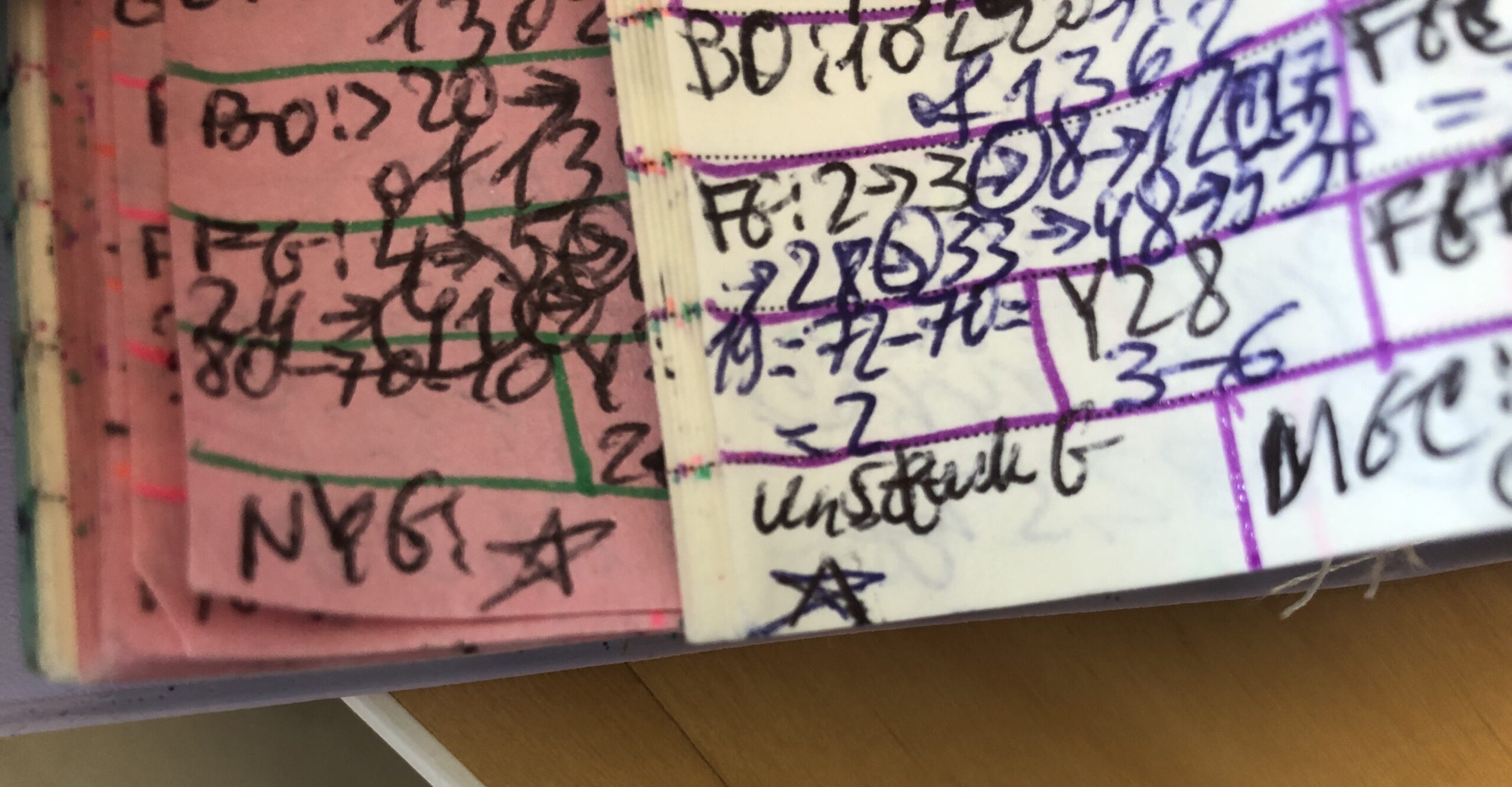 No YouTube Game (NYG) and Unstuck Game with a star each
No YouTube Game (NYG) and Unstuck Game with a star each
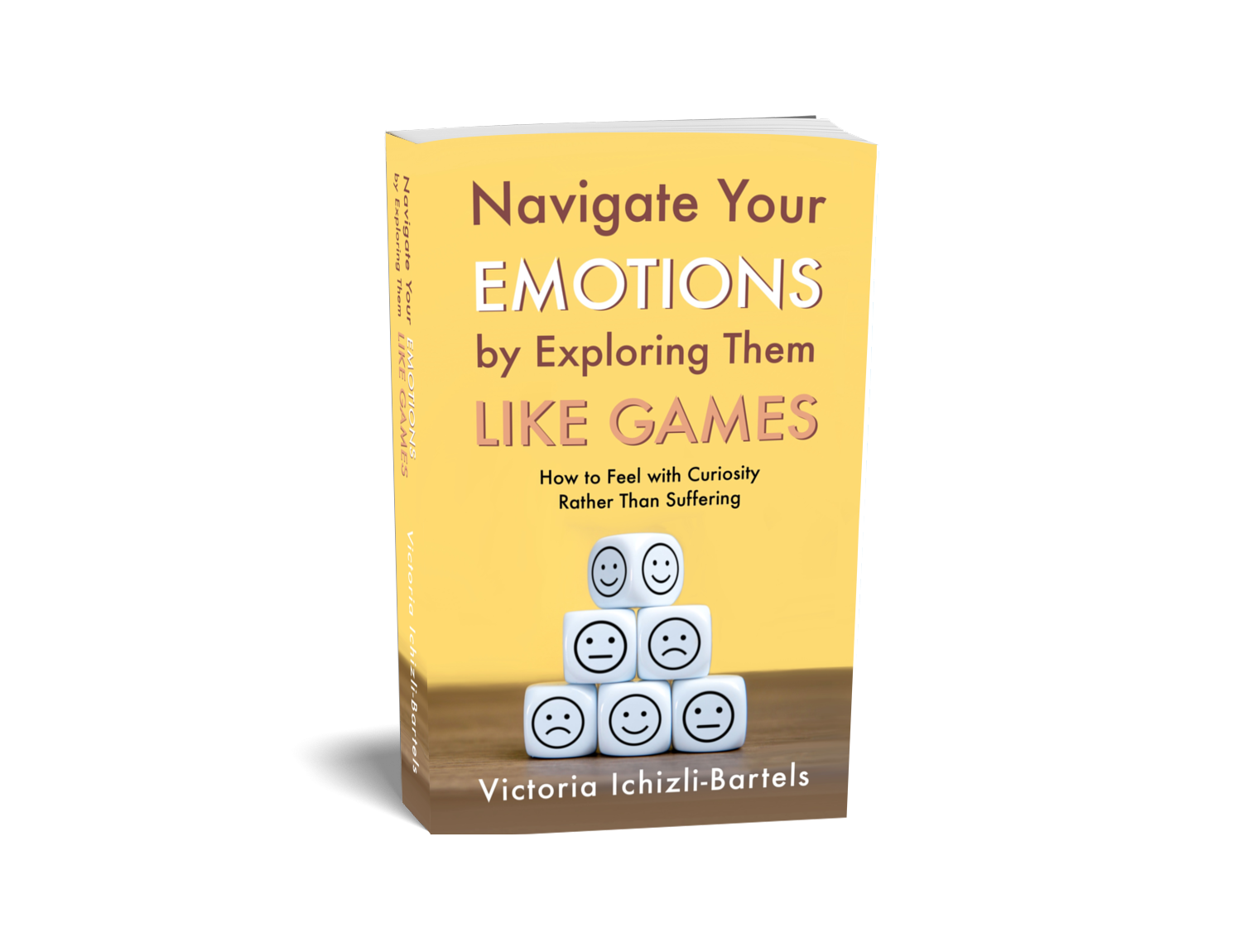
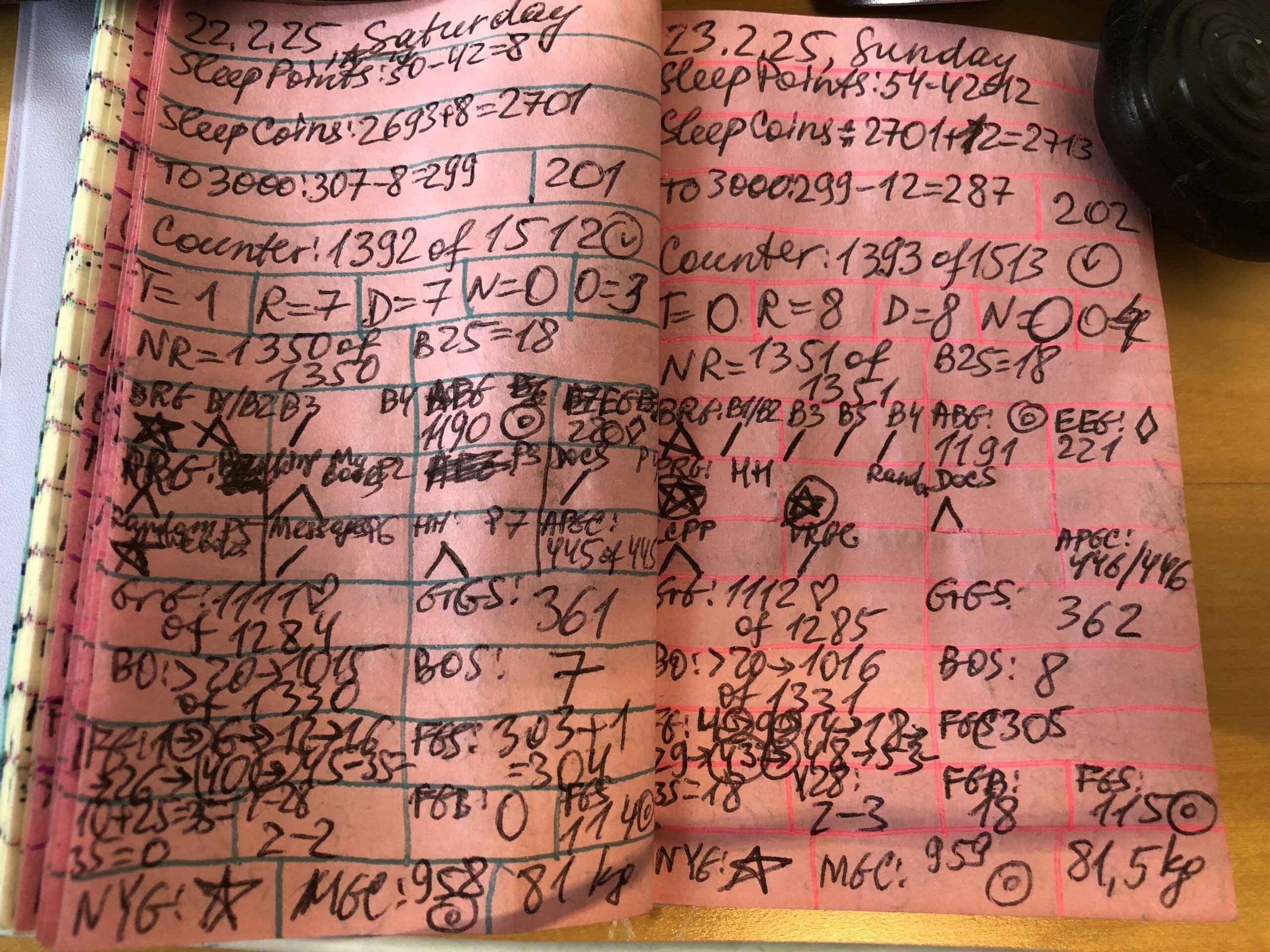 (Re)introduction of BRG (Book Race Game) and PRG (Project Race Game); See the middle of each page between NR and GrG games. These stand for Reading Nora Roberts’ Books Game and Gratitude Game. The picture illustrates my scores this past weekend (Feb. 22 and 23, 2025)
(Re)introduction of BRG (Book Race Game) and PRG (Project Race Game); See the middle of each page between NR and GrG games. These stand for Reading Nora Roberts’ Books Game and Gratitude Game. The picture illustrates my scores this past weekend (Feb. 22 and 23, 2025)
